
Find A Professional
More Items From Ergsy search
-

Navigating Personal Injury Claims: What You Need to Know Post-2023
Relevance: 100%
-

Is there a minimum claim amount?
Relevance: 99%
-

Can I make a joint claim with other users?
Relevance: 90%
-

Can I make a claim online?
Relevance: 89%
-
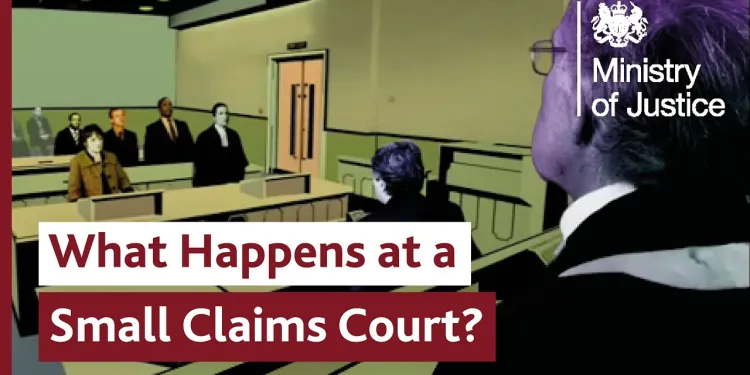
What Happens at Small Claims Court? Making a Court Claim for Money
Relevance: 88%
-

Is there a deadline for making a claim?
Relevance: 86%
-

Who should I contact to initiate my claim?
Relevance: 73%
-
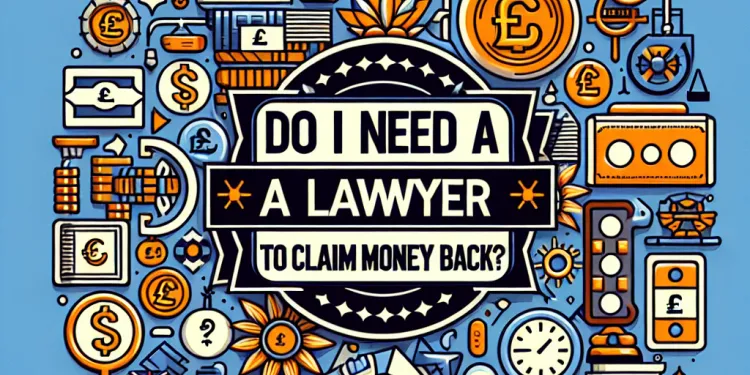
Do I need a lawyer to claim money back?
Relevance: 69%
-

How can I claim money back from my water company?
Relevance: 63%
-

What if I have moved house since the claim period?
Relevance: 51%
-

What evidence do I need to support my claim?
Relevance: 49%
-

Higher Income Tax - How to Claim Pension Tax Relief | Extra 20% Boost
Relevance: 45%
-

What should I do if my claim is rejected?
Relevance: 45%
-

Are there any fees to claim money back?
Relevance: 41%
-

Who can claim PIP?
Relevance: 39%
-

Who can claim PIP?
Relevance: 38%
-

Greenwashing Lawsuits Increase as Environmental Claims Face Legal Checks
Relevance: 38%
-

What is the role of a water regulator in my claim?
Relevance: 36%
-

What is the first step to claim money back from my water company?
Relevance: 28%
-

NHS Pensions | How to Claim? | Ill Health, Active & Deferred Members
Relevance: 28%
-

An introduction to claiming asylum in the UK
Relevance: 24%
-

Three-year limit for child sexual abuse claims to be removed
Relevance: 23%
-

How much can I receive from the Funeral Expenses Payment?
Relevance: 19%
-

What is Personal Independence Payment (PIP) & Attendance Allowance?
Relevance: 19%
-

Who is eligible for a Funeral Expenses Payment?
Relevance: 18%
-

What is Personal Independence Payment (PIP)?
Relevance: 18%
-

What can I do if the water company doesn’t respond to my claim?
Relevance: 18%
-
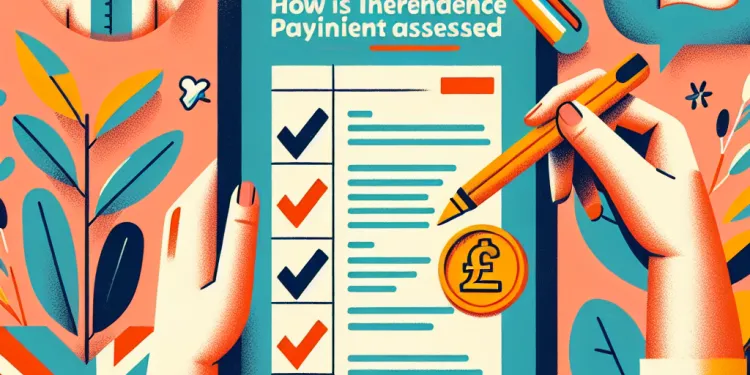
How is PIP assessed?
Relevance: 17%
-

Answering NHS Pension Questions | Opting-Out | How to Claim | Moving Abroad etc.
Relevance: 16%
-

Applying For Universal Credit
Relevance: 15%
-
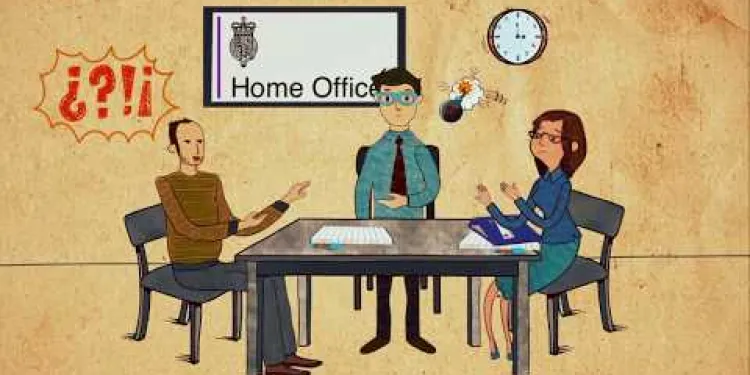
The asylum screening interview
Relevance: 13%
-

How long does it take to process a refund claim?
Relevance: 13%
-

What is the Sure Start Grant?
Relevance: 8%
-

Who is eligible for the Sure Start Maternity Grant?
Relevance: 8%
-
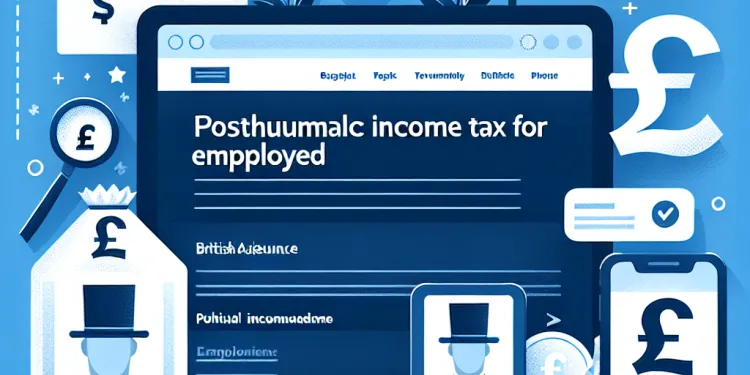
What happens to a deceased’s Income Tax if they were employed?
Relevance: 7%
-

How much is the Sure Start Maternity Grant?
Relevance: 7%
-

What is Personal Independence Payment (PIP)?
Relevance: 7%
-

The Devious Car Insurance Scam Hidden In Your Policy! And How to Deal With it
Relevance: 7%
-

State Pension UK | How much will I get? | WILL IT LAST FOREVER?!?
Relevance: 6%
-

What is the Sure Start Maternity Grant?
Relevance: 6%
Understanding Why Your Claim Was Rejected
If your claim has been rejected, the first step is to thoroughly understand the reasons behind the decision. You will typically receive a letter or an email explaining why your claim was denied. It is essential to carefully read this correspondence to identify the specific reasons for rejection. Common reasons can include insufficient evidence, missed deadlines, or policy exclusions.
Review the Policy Document
After identifying the reasons for rejection, revisit your insurance policy document or the terms and conditions of the service involved in your claim. This document will help you verify if the claim should indeed be valid according to the agreement. Ensure that you meet all the criteria and that the claim is within the coverage period. Pay attention to any exclusions or limitations that may apply.
Gather Additional Evidence
If the rejection is due to a lack of evidence, consider gathering more documentation to support your case. This could include receipts, photographs, witness statements, or expert reports. The goal is to provide as much relevant information as possible to substantiate your claim. Make sure all documents are clear, complete, and organized.
Contact Your Insurer or Service Provider
Once you have reviewed the policy and gathered additional evidence, contact your insurer or service provider. You can either call or write to them, but ensure that your communication is clear and professional. Explain your position, provide the additional evidence, and ask for a reconsideration of your claim. Be sure to keep records of all communications, including emails and letters.
Request a Formal Review or Appeal
If your initial attempt to resolve the issue is unsuccessful, you can request a formal review or appeal the decision. Most companies have an established process for dealing with such requests. You will typically need to fill out a form or draft a letter outlining your case. If your case is strong, the company may overturn the initial rejection.
Seek External Help
If your appeal fails, consider seeking help from external organizations. In the UK, you can contact the Financial Ombudsman Service (FOS) if the issue involves financial products like insurance. The FOS provides free, unbiased arbitration and can review your case after you’ve exhausted all internal procedures.
Consult Legal Advice
If all else fails, seeking legal advice might be a viable option. Legal professionals can provide expert guidance and may be able to identify aspects of your claim or the company's handling of it that warrant legal action. However, keep in mind that this can be costly and should be considered a last resort.
Stay Informed and Proactive
Throughout the process, stay informed about your rights and remain proactive in following up on your claim. Keeping organized records and being persistent can increase your chances of success. Always maintain polite and professional communication when dealing with customer service or legal representatives. These steps can help you navigate the process efficiently if your claim is rejected.
Why Was Your Claim Rejected?
If your claim was turned down, you need to find out why. You will get a letter or email telling you the reason. Read this carefully. Some common reasons are not enough proof, missing the deadline, or not covered by the policy.
Check Your Policy
Look at the rules in your insurance policy or service agreement. This can help you see if your claim should be accepted. Make sure you followed all the rules and the claim is within the time period. Look for any special rules or limits.
Find More Proof
If your claim was rejected because you did not have enough proof, try to collect more. This can be receipts, photos, statements from witnesses, or reports from experts. Make sure your proof is clear and easy to understand.
Talk to Your Insurance Company
After checking your policy and getting more proof, contact your insurance company. You can call or write to them. Explain your side, show your proof, and ask for them to look at your claim again. Keep all your emails and letters for your records.
Ask for a Review or Appeal
If they still say no, you can ask for a review or appeal. Companies usually have a process for this. You might need to fill out a form or write a letter. If you have a good case, they might change their mind.
Get Help from Others
If your appeal does not work, you can get help from other groups. In the UK, you can talk to the Financial Ombudsman Service (FOS) for issues with insurance. They can look at your claim for free.
Get Legal Help
If nothing else works, you might need legal help. Lawyers can give you advice and look for problems with how the company handled your claim. Remember, this can be expensive, so it's a last option.
Stay Proactive
Keep learning about your rights and stay active in following up on your claim. Keep your records organized and keep trying. Be polite and professional. This will help you if your claim is turned down.
Frequently Asked Questions
What should I do immediately after my claim is rejected?
Begin by carefully reviewing the rejection letter to understand the reasons for the denial.
Can I request a detailed explanation for the rejection?
Yes, contact the claims department to request a more detailed explanation if the rejection letter is not clear.
Is there a time limit for appealing a rejected claim?
Yes, many policies have a specific time frame within which you can file an appeal, so check your policy documents carefully.
How can I gather evidence to support my appeal?
Collect all relevant documents, medical records, and correspondence related to your claim to provide additional evidence.
Should I seek professional help if my claim is rejected?
Consider consulting with a legal expert or a claims consultant who specializes in insurance claims.
Can I submit additional documentation during an appeal?
Yes, ensure you provide any missing or additional documentation that supports your claim during the appeal process.
What if my appeal is also denied?
If your appeal is denied, you may have further options like mediation, arbitration, or legal action depending on the terms of your policy and local laws.
Is it possible to negotiate with the insurance company after a rejection?
Yes, sometimes negotiations can result in a settlement even after a claim has been initially denied.
How often do claim appeals succeed?
Success rates for appeals vary, but many denials are overturned upon providing additional information and clarification.
What common reasons do insurance companies give for rejecting claims?
Common reasons include missing information, non-covered events, policy exclusions, or late filing.
Can I submit a new claim if my first one was rejected?
If new information or circumstances arise, you may be able to submit a new claim, but ensure it addresses the issues of the initial rejection.
Who do I contact to start the appeal process?
Contact your insurance company's claims department to get instructions on how to begin the appeal process.
What should I include in my appeal letter?
Include your personal information, policy number, claim number, a detailed explanation of why the decision should be reconsidered, and any new evidence.
How long does the appeal process typically take?
The duration can vary depending on the complexity of the claim and the insurance company's policies, but it usually takes a few weeks to a couple of months.
Can I escalate my case if I'm not satisfied with the appeal outcome?
Yes, you can escalate to a higher authority within the insurance company or proceed with external dispute resolution services.
Will appealing a claim cost me any money?
Most insurance companies do not charge for appeals, but you may incur costs if you hire legal counsel or other professional assistance.
Does hiring a lawyer improve my chances of winning an appeal?
A lawyer with experience in insurance claims can provide valuable assistance and potentially improve your chances of success.
Can I find an independent review service to look at my denied claim?
Yes, some regions have independent review services that can assess your denied claim and provide an objective opinion.
Should I seek guidance from a consumer protection agency?
If you believe your claim was unfairly rejected, consumer protection agencies can provide guidance and sometimes mediate disputes.
What are my legal options if I disagree with the appeal decision?
If you disagree with the appeal decision, you may have legal options, such as filing a complaint with the insurance regulator or taking legal action in court.
What should I do if they say no to my claim?
First, read the letter that says no. Try to understand why they said no.
Can I ask why it was not accepted?
Yes, you can ask them to tell you why. You can also ask them to give you more details.
If you need help, you can:
- Ask someone to explain it to you.
- Use a computer program that reads out loud.
- Look for videos that explain it in a simple way.
Yes, call or write to the claims department if the letter saying "no" is confusing. They can explain it better.
Can I ask for a review if my claim is turned down? How long do I have to do it?
Yes, many rules have a set time when you can ask for a review. Look at your rule papers carefully.
How can I collect proof to help my appeal?
Gather all important papers, doctor notes, and letters about your claim. This helps you show more proof.
What should I do if my claim is not accepted?
If your claim is turned down, you can ask for help from a professional. A professional can give good advice. They can explain things and help you understand what to do next. It is okay to ask for help when things are confusing.
Using a friend or family member for support can also be a good idea. They can help you read letters and understand them better.
Some people use tools like voice-to-text apps. These apps can read things out loud to you. Hearing the information might make it easier to understand.
Think about talking to a lawyer or a person who knows a lot about insurance claims. They can help you understand what to do.
Can I give more papers during an appeal?
Yes, make sure you give any papers you have that help your case when you ask for a review.
What Happens if My Appeal is Denied?
If your appeal is denied, it means the decision hasn't changed. Here are some things you can do:
- Ask someone to explain why it was denied.
- See if you can appeal again.
- Talk to a support person who can help, like a friend or advisor.
- Use tools like a calendar to keep track of important dates.
- Write down your feelings and thoughts to share with someone you trust.
If your request is turned down, don't worry. You might still have choices, like having someone help both sides agree (mediation), having someone decide for you (arbitration), or going to court to solve it. What you can do depends on your plan and local rules.
Can you talk to the insurance company if they say no?
Yes, you can talk to them again. Here's how:
- Ask why they said no.
- Write down what they say.
- Ask someone to help you understand.
- Try talking to them again. Be polite.
- Use simple words and explain why you need the insurance.
These might help you:
- Ask a friend or family member for help.
- Use a dictionary to understand new words.
- Practice what you want to say.
Yes, sometimes people can agree on a solution, even if a claim was first turned down.
How many times do people win an appeal?
How often appeals work can be different, but sometimes denials are changed when more information is given.
Why do insurance companies say "no" to claims?
Here are some common reasons:
- The claim form was not filled in correctly.
- The problem happened before you got the insurance.
- Things you said when you signed up do not match.
- The insurance does not cover everything.
Here are some tips to help:
- Read the insurance policy carefully.
- Ask someone to help you fill out forms.
- Use a dictionary or a glossary for hard words.
Insurance might not pay you if:
- You didn't give all the needed information.
- Your problem is not covered by the insurance.
- The insurance has rules that stop payment.
- You waited too long to ask for money.
You can ask for help from a family member or use a checklist to make sure you have all the right things needed.
Can I try again if my first claim was turned down?
If your first claim did not work, you can try again. Here are some tips:
- Check why your claim was turned down. Look for any mistakes.
- Ask for help if you are not sure what to do. A friend or helper can support you.
- Make sure all the information you give is correct and complete.
- You can use tools like spell check or online forms that guide you step by step.
If something new happens or you get new information, you might be able to make a new claim. Make sure this new claim fixes the problems that were in your first claim.
Who should I talk to if I want to ask for help?
If you need to ask for help, you should speak to someone in charge. You can call or send a message to the right office or person. It is important to ask the right person so they can help you. If you are unsure, ask a friend or an adult to help you find out who to speak to.
Call the people at your insurance company who handle claims. Ask them how to start an appeal.
What do I need to put in my appeal letter?
Include your name and contact details. Write down your policy number and claim number. Explain clearly why you think the decision should change. Share any new information you have.
How long does an appeal usually take?
How long it takes can change. It depends on how tricky the claim is and the rules the insurance company has. Usually, it takes a few weeks or maybe a couple of months.
Can I ask for more help if I'm not happy with the appeal decision?
If you have a problem with your insurance, you can talk to a manager at the company. If that doesn't help, you can ask someone outside the company to help fix the problem.
Do I have to pay money to appeal a claim?
Most of the time, insurance companies do not make you pay to complain about a decision. But if you hire a lawyer or get help from someone else, you might have to pay them.
Will getting a lawyer help me win my appeal?
If you are thinking about getting a lawyer, here are some things to know:
- A lawyer knows a lot about the law and can help explain things to you.
- They can tell your side of the story better to the judge.
- They understand the rules and can help you follow them.
Having a lawyer might make it easier to win. You can also:
- Ask a family member or friend to help you understand things.
- Use online tools or apps to learn more about appeals.
A lawyer who knows a lot about insurance claims can help you. This can make it more likely for you to do well.
Using simple language and tools like text-to-speech can also help.
Can I find a service to help check my denied claim?
Yes, you can find a service to help. These services can look at your claim again and say if they think the decision was right or wrong.
Here are some tips to help you:
- Ask someone you trust for help, like a family member or friend.
- Look for websites or phone numbers that offer free help.
- Use a computer or smartphone to search for these services online.
These tools can help make the process easier for you.
Yes, some places have services that can look at your denied claim again. They give a fair opinion on it.
Do I need help from a consumer protection agency?
If you have a problem with something you bought, a consumer protection agency can help you.
They can give advice and help you solve problems.
It is a good idea to ask for help if you are confused or worried.
You can also ask a friend or family member to help you talk to the agency.
If you think your claim was not treated fairly, there are places that can help you. These places can give you advice. Sometimes, they can also help talk between you and the other person to fix the problem.
What can I do if I don't agree with the appeal decision?
If you don't agree with the decision, you have some choices:
- You can ask for help from a lawyer. They know about the law.
- You can find someone who can help you understand your choices. This could be a family member or a friend.
- You can look for information online or in books at the library.
- You can ask someone to explain it to you in simple words.
Remember, it's okay to ask for help!
If you don't agree with the decision about your appeal, there are things you can do. You can talk to the people who make sure insurance companies follow the rules. You can also go to court for help.
Useful Links
- Ergsy carfully checks the information in the videos we provide here.
- Videos shown by Youtube after a video has completed, have NOT been reviewed by ERGSY.
- To view, click the arrow in centre of video.
- Most of the videos you find here will have subtitles and/or closed captions available.
- You may need to turn these on, and choose your preferred language.
- Go to the video you'd like to watch.
- If closed captions (CC) are available, settings will be visible on the bottom right of the video player.
- To turn on Captions, click settings .
- To turn off Captions, click settings again.
More Items From Ergsy search
-

Navigating Personal Injury Claims: What You Need to Know Post-2023
Relevance: 100%
-

Is there a minimum claim amount?
Relevance: 99%
-

Can I make a joint claim with other users?
Relevance: 90%
-

Can I make a claim online?
Relevance: 89%
-

What Happens at Small Claims Court? Making a Court Claim for Money
Relevance: 88%
-

Is there a deadline for making a claim?
Relevance: 86%
-

Who should I contact to initiate my claim?
Relevance: 73%
-

Do I need a lawyer to claim money back?
Relevance: 69%
-

How can I claim money back from my water company?
Relevance: 63%
-

What if I have moved house since the claim period?
Relevance: 51%
-

What evidence do I need to support my claim?
Relevance: 49%
-

Higher Income Tax - How to Claim Pension Tax Relief | Extra 20% Boost
Relevance: 45%
-

What should I do if my claim is rejected?
Relevance: 45%
-

Are there any fees to claim money back?
Relevance: 41%
-

Who can claim PIP?
Relevance: 39%
-

Who can claim PIP?
Relevance: 38%
-

Greenwashing Lawsuits Increase as Environmental Claims Face Legal Checks
Relevance: 38%
-

What is the role of a water regulator in my claim?
Relevance: 36%
-

What is the first step to claim money back from my water company?
Relevance: 28%
-

NHS Pensions | How to Claim? | Ill Health, Active & Deferred Members
Relevance: 28%
-

An introduction to claiming asylum in the UK
Relevance: 24%
-

Three-year limit for child sexual abuse claims to be removed
Relevance: 23%
-

How much can I receive from the Funeral Expenses Payment?
Relevance: 19%
-

What is Personal Independence Payment (PIP) & Attendance Allowance?
Relevance: 19%
-

Who is eligible for a Funeral Expenses Payment?
Relevance: 18%
-

What is Personal Independence Payment (PIP)?
Relevance: 18%
-

What can I do if the water company doesn’t respond to my claim?
Relevance: 18%
-

How is PIP assessed?
Relevance: 17%
-

Answering NHS Pension Questions | Opting-Out | How to Claim | Moving Abroad etc.
Relevance: 16%
-

Applying For Universal Credit
Relevance: 15%
-

The asylum screening interview
Relevance: 13%
-

How long does it take to process a refund claim?
Relevance: 13%
-

What is the Sure Start Grant?
Relevance: 8%
-

Who is eligible for the Sure Start Maternity Grant?
Relevance: 8%
-

What happens to a deceased’s Income Tax if they were employed?
Relevance: 7%
-

How much is the Sure Start Maternity Grant?
Relevance: 7%
-

What is Personal Independence Payment (PIP)?
Relevance: 7%
-

The Devious Car Insurance Scam Hidden In Your Policy! And How to Deal With it
Relevance: 7%
-

State Pension UK | How much will I get? | WILL IT LAST FOREVER?!?
Relevance: 6%
-

What is the Sure Start Maternity Grant?
Relevance: 6%